Table of Contents
What is a Sentence?
A sentence can be defined as a set (or group) of words which gives proper meaning to it. It is also defined as a group of words which gives a complete message, either it may be an idea, expression or interrogation (question).
For example: I woke up early morning at 5 am.
The sentence is the largest unit in the English Language (in other languages as well). It usually starts with a capital letter and ends with a full stop (or) question mark (or) exclamation mark.
Any complete sentence in the English Language has two parts in it. Those are,
- Subject
- Predicate
If any one of the above mentioned (Subject and Predicate) is missing in the sentence, then it is said to be incomplete and doesn’t give a proper message.
The subject is the main part of the sentence because it describes the topic of the sentence.
Predicate describe about the subject in the sentence. Usually, predicate contains a verb which describes the action of the Subject.
Also Read: What is a word in English? (Definition and Examples) | Best Guide 2021
Rules Of Sentence
There are some set of rules that should be followed while framing the sentence. By understanding these rules, you will be able to frame proper sentences in English.
Rule 1: An ideal sentence must have atleast one subject and one verb.
As we discussed earlier that the sentence should have one subject and verb. The Subject sometimes can be hidden in the sentence, but verb must be displayed.
Example Sentences:
- Stop! (The meaning of the sentence is “You stop!”)
Here, the Subject "You" is hidden, but the verb is visible (ie, "stop"). Eventhough the subject is hidden, the proper message is displayed.- Come here! (The meaning of the sentence is “You come here!”)
Here, the Subject "You" is hidden, but the verb is visible (ie, "come here").These are the type of sentences which has subject hidden in it.
Rule 2: Every sentence should start with a capital letter.
When you are starting a sentence always remember that you need to capitalize the first letter of the first word used.
Even if you are starting a new paragraph, you need to Capitalize. Other places like titles of the book, etc should be in capitals in each word.
Example Sentences:
- Incorrect: milin is a brilliant student in our class. he loves to read books. (X)
- Correct: Milin is a brilliant student in our class. He loves to read books. (_/)
- Incorrect: i daily watch the news on TV every morning. (X)
- Correct: I daily watch the news on TV every morning. (_/)
- Incorrect: he often likes to play tennis. (X)
- Correct: He often likes to play tennis. (_/)
Rule 3: Every sentence should end with a full stop, question mark or exclamatory mark.
The sentence should either end with,
1) full stop (.) for simple statements (or)
2) question mark (?) for interrogation (questioning) statements (or)
3) exclamation (!) for expressive statements.
Example Statements: (for full stop)
- Playing sports is good for your health.
- John likes to pursue Bachelours degree at MIT College.
- Tina always submits her assignments on time.
Example Statements: (for question mark)
- What are your plans tonight?
- How are you?
- How did you spend your vacation in London?
Example Statements: (for exclamation)
- How beautiful this dress is!
- What a coincidence it is!
- Oh, sorry for the delay!
Rule 4: The sentence should deliver a complete message, question or expression.
As we discussed before that the sentence contains both Subject and Predicate. It becomes an incomplete message when any one of it is missing.
Example Statements:
- Students go to
- If I studied maths, then
- I want to
We can observe that the above three statements are not complete and no proper message is shown.
Also Read: 12 Rules of Grammar | (Grammar Basic Rules with examples)
Basic Examples Of Sentence
Here, P1 and P2 is nothing but an indication of Predicate. As we read before that it has one verb in the sentence, so consider these both as one Predicate.
| Subject | P1: Verb | P2 |
| I | read | books. |
| He | play | games. |
| She | loves | cookies. |
| I | am | a good boy. |
| We | are | happy. |
| They | have | money. |
| You | go | to school. |
| Raju | helped | an old man. |
| Sita | sang | a song. |
| Sudheer | went | to London. |
| Micheal | is playing | football. |
| Sun | rises | to the east. |
| You | speak | English |
| They | saw | a lion. |
| I | teach | grammar |
Types of Sentences
Different types of Structures
Structurally, sentences are classified into four types. Those are,
- Simple sentence
- Compound sentence
- Complex sentence
- Complex – compound sentence
Different types of Functions
Functionally, sentences are classified into four types. Those are,
- Declarative sentence
- Imperative sentence
- Interrogative sentence
- Exclamatory sentence
Quiz Time! (Test your knowledge here)
#1. A sentence is a set of ____________.
#2. A Sentence can be _________________.
Answer: A sentence can be declarative, interrogative and expressive.
#3. A sentence is said to be incomplete if it don't have either Subject or Predicate. It is true or false?
Answer: It is true.
#4. "Oh, you have scored good marks this time!". What type of sentence is this?
Answer: It is actually an Exclamatory sentence because the whole sentence is about expressing emotion.
#5. A Sentence must end either with _________________.
Answer: A Sentence must end either with a full stop (.), question mark (?) or exclamation mark (!).
#6. An ideal sentence must have atleast ______________.
Answer: An ideal sentence must have at least one subject and one verb.
#7. Which is the verb (predicate) of the given sentence? - "I play with friends."
Answer: Here, “play” is the verb because it represents the action.
#8. The sentence is the smallest unit in the language. Is it true or false?
Answer: It is false. Actually, the word is the smallest unit.
#9. An ideal sentence has two parts ________ and _________.
Answer: An ideal sentence has two parts which are called as subject and predicate.
#10. Identify the Subject from the statement. "Tina wants to sing a song."
Answer: Here, ‘Tina’ is the subject of the sentence because the main topic is about Tina.
Results
|
Getting your Trinity Audio player ready...
|
Hurray….. You have passed this test! 🙂
Congratulations on completing the quiz. We are happy that you have understood this topic very well.
If you want to try again, you can start this quiz by refreshing this page.
Otherwise, you can visit the next topic 🙂
|
Getting your Trinity Audio player ready...
|
Oh, sorry about that. You didn’t pass this test! 🙁
Please read the topic carefully and try again.
Summary: (What is a Sentence in English Grammar?)
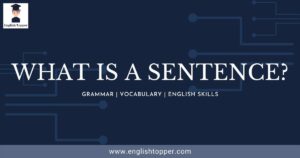
- A sentence is basically a group of words which gives a proper message.
- It is the largest unit of all languages.
- It should start with a capital letter and end with a full stop (or) question mark (or) exclamation mark.
- It contains two parts Subject and Predicate.
- Incomplete sentences are those which don’t have either Subject or Predicate.
Also Read: What is Grammar? | (Grammar definition, types & examples) | Best Guide 2021
If you are interested to learn more, then you can refer wikipedia from here.
I hope that you understood the topic “What is a Sentence?”. If you still have any doubts, then comment down below and we will respond as soon as possible. Thank You.

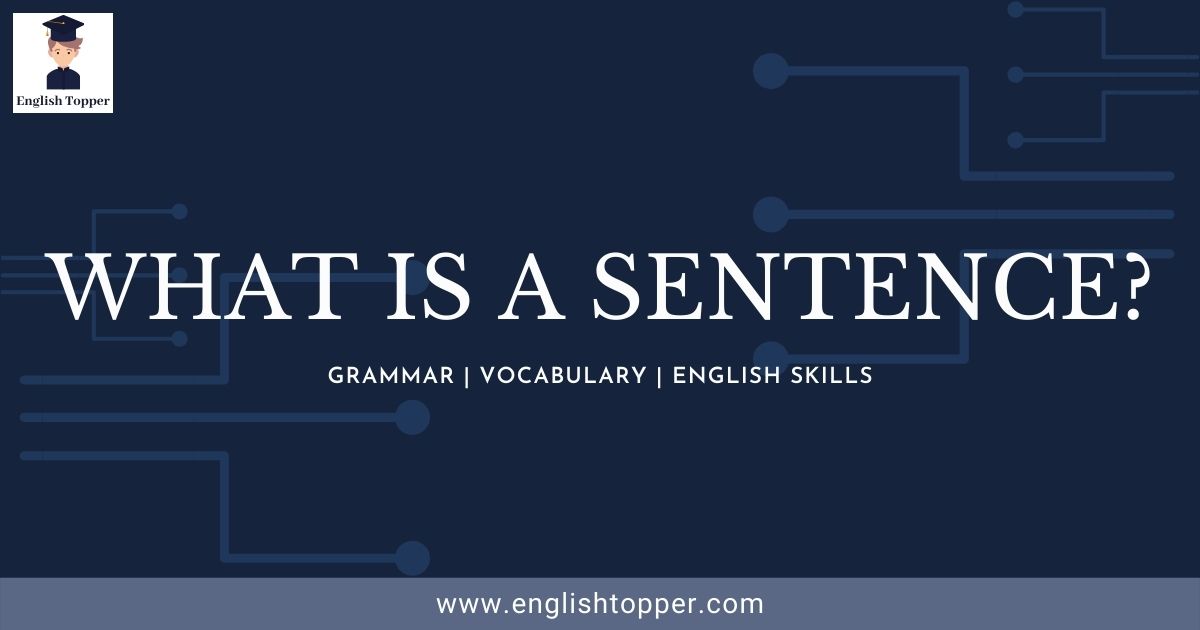



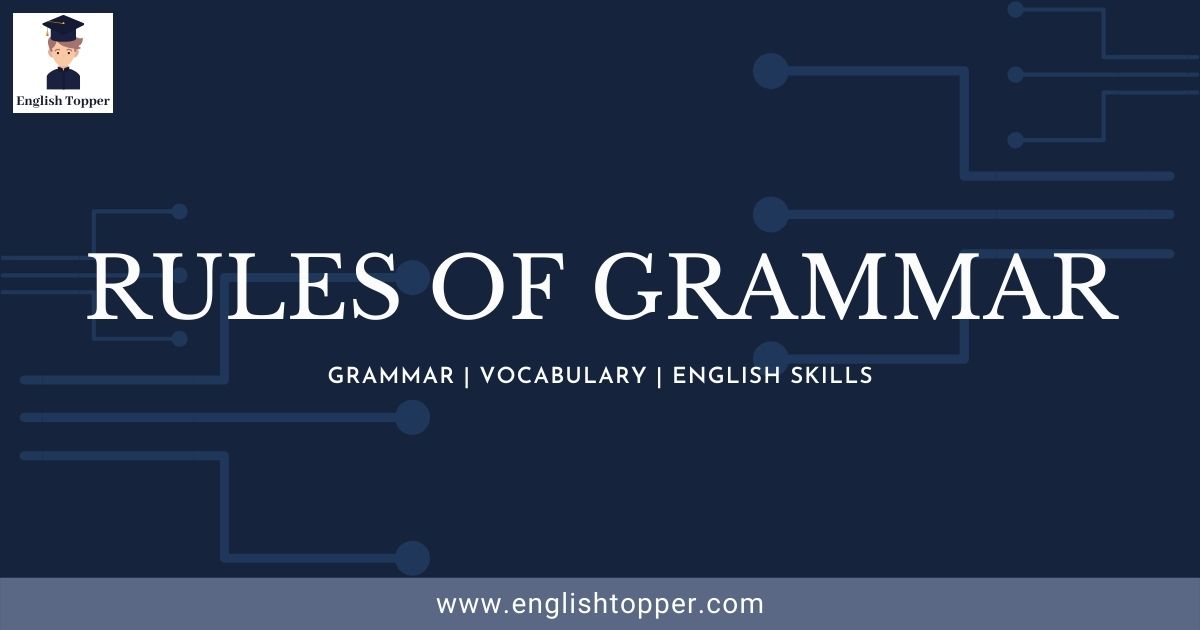
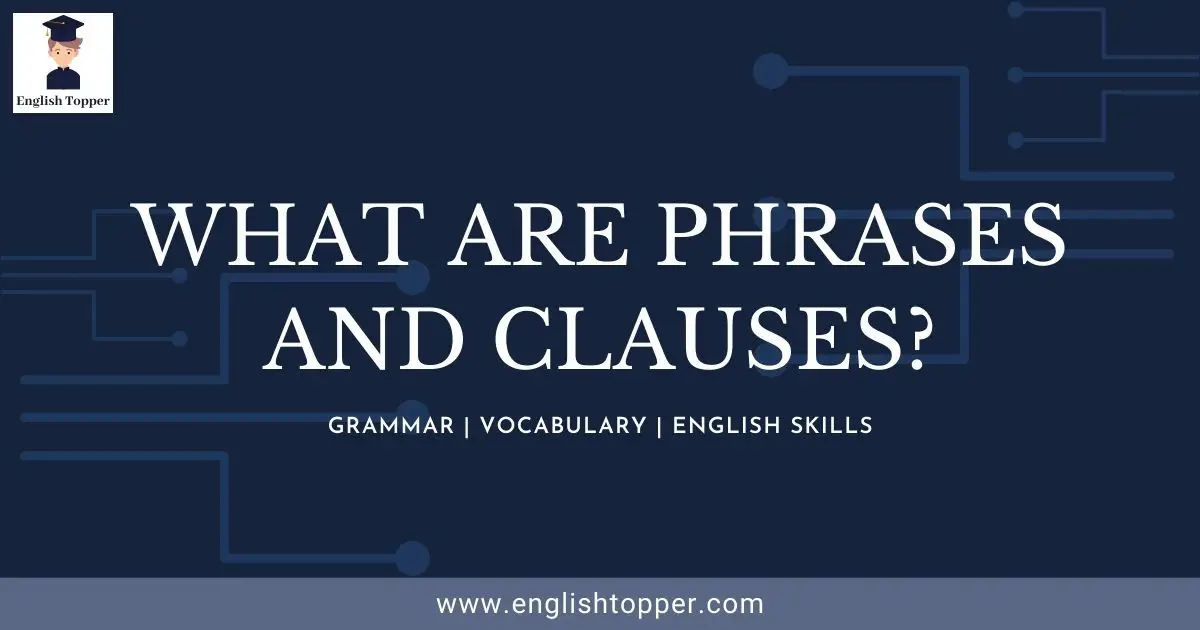
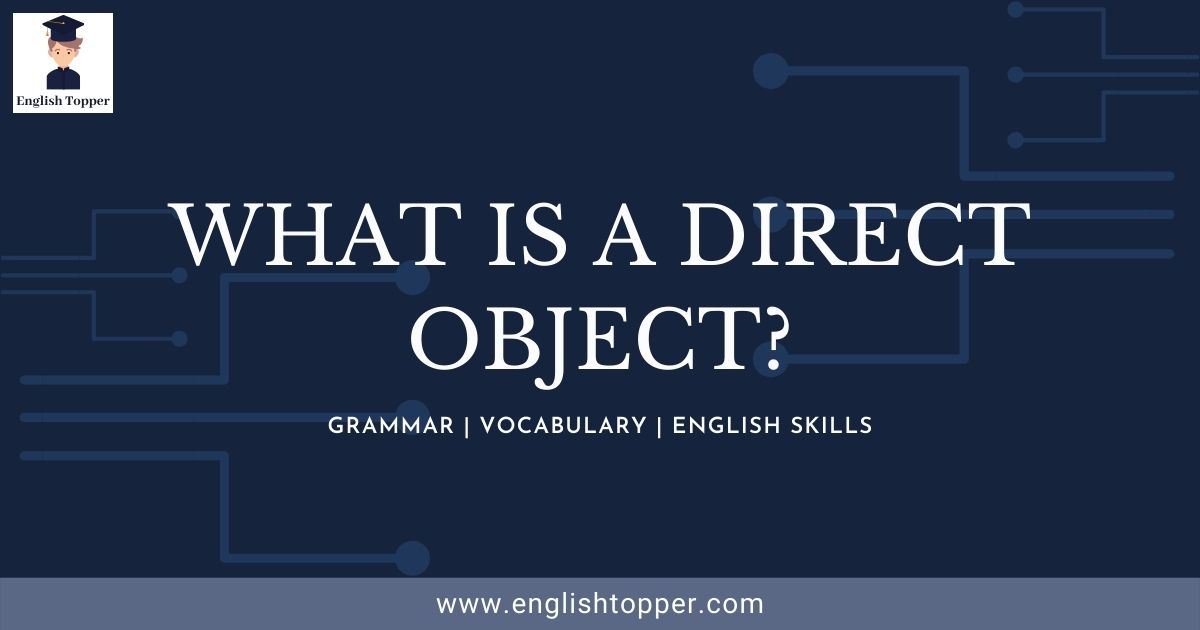

[…] What is a Sentence in English Grammar? | Best Guide for 2021 […]
[…] If you haven’t read our previous blog about Sentence, then click here to read. […]
[…] To learn more about sentence structure and its rules, then click here. […]